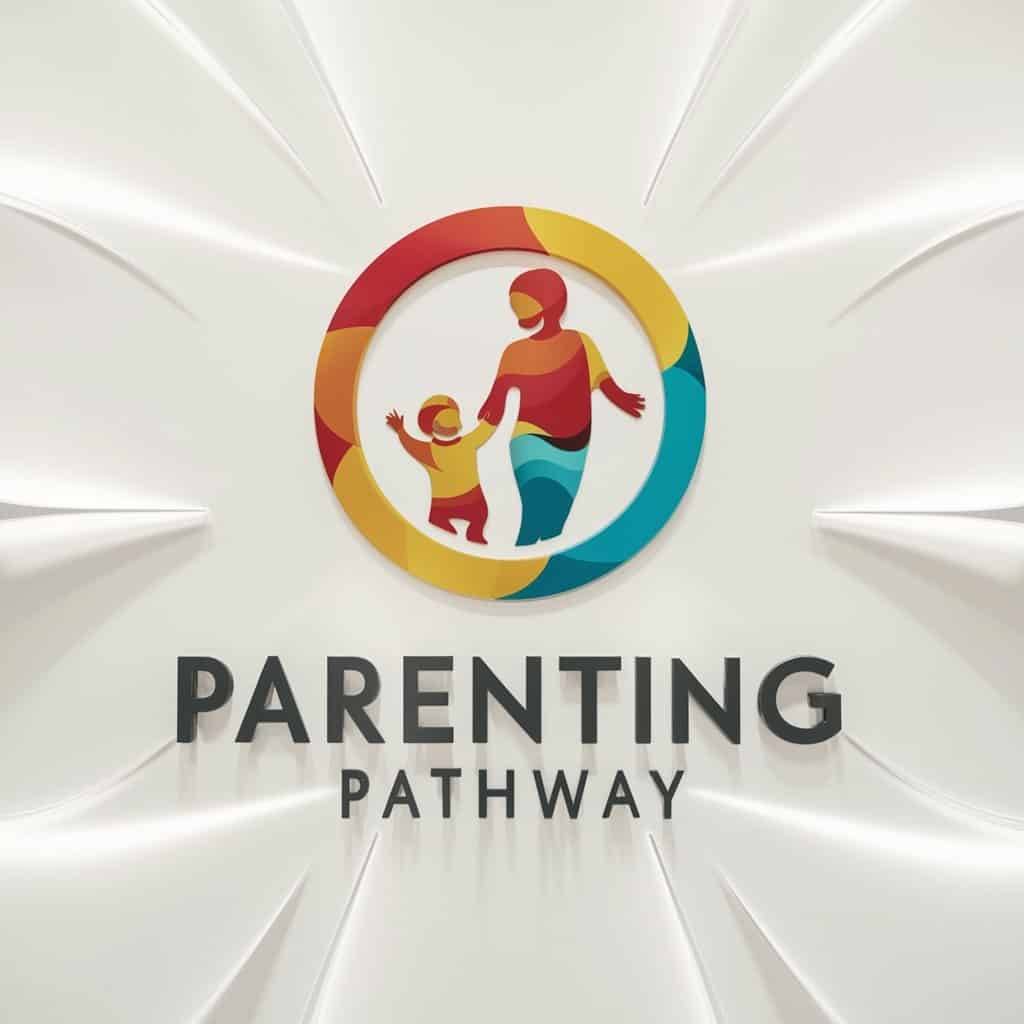What’s The Highest Paid Role In Child Psychology And Psychiatry?
Back to Blog
Highest Paid Roles in Child Psychology and Psychiatry: Comprehensive Career Overview
When exploring lucrative career paths in child psychology and psychiatry, professionals can discover several highly compensated positions that offer both financial rewards and meaningful impact. Understanding the top-earning roles requires a comprehensive examination of specialized career trajectories.
Pediatric Neuropsychologists: Leading High-Income Specialists
Pediatric neuropsychologists represent one of the most financially rewarding specialties in child mental health. These professionals typically earn between $120,000 to $250,000 annually, depending on location, experience, and practice setting. Their expertise involves evaluating complex neurological conditions affecting children’s cognitive functioning, including:
• Developmental disorders
• Brain injury assessments
• Learning disability diagnostics
• Cognitive rehabilitation strategies
Advanced Clinical Opportunities
Professionals pursuing this career path often require:
- Doctoral-level psychology degree
- Specialized neuropsychology certification
- Extensive clinical training
- Ongoing research contributions
Child Psychiatrist Roles: Pinnacle of Earning Potential
Child psychiatrists consistently rank as the highest-paid professionals in pediatric mental health. With median annual salaries ranging from $220,000 to $320,000, these medical specialists diagnose and treat complex psychological conditions in children and adolescents.
Key responsibilities include:
• Comprehensive psychological assessments
• Medication management
• Treatment plan development
• Collaborative care coordination
Professional Development Pathways
Becoming a child psychiatrist requires:
- Medical degree
- Psychiatric residency
- Child psychiatry fellowship
- Board certification
- State licensing
Pediatric Behavioral Health Directors
Administrative roles in pediatric behavioral health offer substantial compensation, with top professionals earning $180,000 to $275,000 annually. These leadership positions demand extensive clinical expertise and advanced management skills.
Responsibilities encompass:
• Program development
• Clinical quality oversight
• Interdisciplinary team management
• Strategic organizational planning
Critical Qualifications
Successful candidates typically possess:
- Advanced clinical credentials
- Proven leadership experience
- Strong administrative capabilities
- Comprehensive understanding of pediatric mental health systems
Private Practice Specialists
Experienced child psychologists establishing private practices can generate significant income, with top practitioners earning $150,000 to $250,000 annually. Success depends on specialized expertise, reputation, and effective business management.
Strategic Practice Development
Factors influencing earning potential include:
• Geographic location
• Specialized treatment niches
• Marketing effectiveness
• Insurance network participation
Research and Academic Positions
Distinguished researchers and academic professionals in child psychology can secure substantial compensation through university appointments, grant funding, and specialized research initiatives. Annual earnings range from $120,000 to $225,000 for established experts.
Research Impact Considerations
Influential factors include:
- Publication record
- Grant acquisition
- Academic reputation
- Institutional affiliation
Professionals aspiring to maximize their earning potential in child psychology and psychiatry must invest in continuous education, specialized training, and strategic career development. While financial compensation is important, the profound opportunity to positively impact children’s mental health remains the most significant reward.
Navigating this competitive field requires dedication, advanced credentials, and a genuine commitment to understanding and supporting children’s psychological well-being. By strategically selecting specialties and maintaining exceptional clinical standards, ambitious professionals can achieve both financial success and meaningful professional fulfillment.
Salary Trajectories for Advanced Child Mental Health Professionals
In the dynamic landscape of child mental health, professionals navigate complex career paths with significant financial potential. The realm of child psychology and psychiatry offers lucrative opportunities for those dedicated to understanding and supporting young minds.
Pediatric neuropsychologists represent one of the most financially rewarding specialties within this field. These highly specialized professionals typically earn between $120,000 to $250,000 annually, depending on experience, location, and specific work environment. Their expertise involves comprehensive assessments of brain-behavior relationships in children, requiring advanced neurological and psychological knowledge.
Clinical child psychologists practicing in private practice or specialized medical settings can command impressive salaries. Experienced practitioners with board certifications and niche expertise can potentially earn $180,000 to $220,000 per year. Those working in metropolitan areas or prestigious medical institutions often see higher compensation packages.
Specialized Career Pathways
Pediatric psychiatrists represent the pinnacle of earning potential in child mental health. These medical doctors specializing in child and adolescent mental health can potentially earn between $220,000 to $350,000 annually. Their extensive medical training, combined with specialized psychological understanding, positions them as top earners in the field.
Factors influencing salary trajectories include:
- Advanced educational credentials
- Board certifications
- Geographic location
- Professional reputation
- Years of specialized experience
Research and Academic Opportunities
Child mental health professionals pursuing academic and research roles can also achieve substantial financial success. Research professors and principal investigators in child psychology might earn $150,000 to $250,000, particularly when securing significant research grants or working at prestigious universities.
Forensic child psychologists represent another high-earning specialty. These professionals work at intersections of mental health and legal systems, providing critical assessments in complex cases. Their unique skill set can command salaries ranging from $130,000 to $250,000 annually.
Advanced Qualifications Matter
Professionals seeking maximum earning potential should consider strategic career development. Pursuing doctoral degrees, obtaining multiple certifications, and developing specialized expertise in emerging areas like neuropsychological assessment or trauma-informed care can significantly enhance financial prospects.
Telehealth and digital mental health platforms have recently expanded opportunities for child mental health professionals. These innovative practice models allow practitioners to diversify income streams, potentially increasing overall earnings through consulting, online therapy, and digital assessment services.
Neuropsychological assessment specialists focusing on developmental disorders represent another high-demand, high-compensation area. Professionals with advanced training in autism spectrum disorders, learning disabilities, and complex neurodevelopmental conditions can develop lucrative private practices or secure positions in specialized medical centers.
Geographic considerations play a crucial role in salary potential. Major metropolitan areas like New York, San Francisco, and Boston often offer higher compensation packages compared to rural regions. Additionally, professionals working in academic medical centers or children’s hospitals tend to receive more competitive salaries.
Continuous professional development remains key to maintaining and increasing earning potential. Attending conferences, publishing research, developing specialized intervention protocols, and staying current with emerging psychological assessment technologies can help professionals differentiate themselves in a competitive market.
While financial compensation is important, successful child mental health professionals emphasize the profound personal satisfaction derived from supporting children’s psychological well-being. The opportunity to make meaningful interventions during critical developmental stages represents an invaluable aspect of this rewarding career path.
Clinical Specializations with Maximum Earning Potential in Child Psychology
In the dynamic field of child psychology, professionals can unlock remarkable earning potential by pursuing specialized clinical roles that combine expertise, advanced training, and targeted interventions. Understanding the most lucrative career paths requires a comprehensive exploration of various specialized domains within child mental health.
Pediatric Neuropsychology: A Lucrative Specialty
Pediatric neuropsychologists represent one of the highest-paid specializations in child psychology. These professionals assess and diagnose complex neurological conditions affecting children’s cognitive functioning, typically earning between $120,000 to $185,000 annually. Their expertise involves:
- Comprehensive brain-behavior relationship evaluations
- Diagnostic assessments for developmental disorders
- Neurological intervention planning
- Collaboration with medical specialists
Pediatric Forensic Psychology: Advanced Earning Potential
Forensic child psychologists working within legal and criminal justice systems command impressive salaries, ranging from $95,000 to $165,000 annually. These professionals provide critical psychological evaluations in sensitive cases involving child abuse, custody disputes, and juvenile legal proceedings.
Key Responsibilities in Forensic Settings
- Psychological assessments for court proceedings
- Expert witness testimony
- Trauma-informed psychological evaluations
- Intervention recommendations for legal contexts
Pediatric Neuropsychiatry: Integrated Medical Expertise
Professionals combining psychiatric and neurological expertise in pediatric settings can earn substantial compensation, with salaries potentially exceeding $220,000 annually. These specialists diagnose and treat complex neurological and psychiatric conditions in children, requiring extensive medical training and specialized certification.
Advanced Clinical Competencies
- Neurodevelopmental disorder management
- Psychiatric medication management
- Advanced diagnostic protocols
- Interdisciplinary treatment planning
Pediatric Research and Clinical Director Roles
Senior leadership positions in child psychology research and clinical settings offer extraordinary earning potential. Research directors and chief clinical psychologists can command salaries between $180,000 and $250,000, depending on institutional reputation and individual expertise.
Strategic Leadership Responsibilities
- Research grant development
- Clinical program implementation
- Institutional strategy formulation
- Advanced clinical training oversight
Private Practice Specialization
Experienced child psychologists establishing specialized private practices focusing on complex developmental disorders or trauma treatment can generate substantial annual revenues. Successful practitioners might earn $150,000 to $220,000 by developing niche therapeutic interventions and maintaining comprehensive treatment programs.
Private Practice Success Factors
- Targeted clinical specialization
- Advanced certification credentials
- Strong professional networking
- Comprehensive treatment approaches
Achieving maximum earning potential in child psychology demands continuous professional development, advanced educational credentials, and strategic career positioning. Professionals must remain committed to ongoing learning, technological integration, and innovative therapeutic approaches to remain competitive in this dynamic healthcare landscape.
Aspiring child psychology professionals should consider these specialized pathways, recognizing that exceptional expertise, continuous skill enhancement, and strategic career management are fundamental to achieving significant financial success while making meaningful contributions to children’s mental health.
Factors Influencing Compensation in Pediatric Psychological Practice
When exploring the landscape of child psychology and psychiatry, professionals quickly discover that compensation varies widely based on multiple critical factors. Understanding these nuances can help practitioners strategically navigate their career paths and maximize their earning potential.
Professional Qualifications and Expertise
Highly specialized credentials significantly impact earning potential in pediatric psychological practice. Professionals with advanced degrees such as a Ph.D. or Psy.D. typically command higher salaries compared to those with master’s level qualifications. Additionally, board certifications in pediatric psychology or child psychiatry can substantially increase compensation packages.
Geographic Location and Market Demand
Geographical regions play a pivotal role in determining compensation levels. Urban centers and metropolitan areas with higher costs of living often offer more competitive salaries. States like California, New York, and Massachusetts consistently provide higher compensation rates for child psychology professionals due to increased demand and complex healthcare infrastructures.
Clinical Setting and Work Environment
The specific work environment dramatically influences earning potential. Professionals working in private practice have different compensation structures compared to those employed in hospitals, schools, or research institutions. Private practitioners can potentially earn more through direct billing and specialized service offerings.
Compensation Variations by Work Setting
- Private Practice: Highest potential earnings with flexible fee structures
- Hospital Systems: Stable salaries with comprehensive benefits
- Academic Institutions: Competitive base salaries with research opportunities
- Government Agencies: Structured pay scales with robust retirement benefits
Specialization and Niche Expertise
Developing expertise in specific areas of child psychology can significantly enhance earning potential. Specialists focusing on complex disorders like autism spectrum disorders, pediatric trauma, or neuropsychological assessments often command premium compensation. Professionals who invest in continuous learning and acquire specialized skills position themselves for higher-paying opportunities.
Experience and Professional Network
Years of experience directly correlate with increased compensation. Early-career professionals typically start at lower salary ranges, while seasoned experts with extensive track records can negotiate substantially higher rates. Building a robust professional network and maintaining a strong reputation within the field can lead to lucrative consulting and speaking opportunities.
Additional Revenue Streams
Successful child psychology professionals often diversify their income through multiple channels. These may include:
- Expert witness testimony
- Academic publications
- Training and workshop facilitation
- Online course development
- Specialized consulting services
Technology and Telehealth Impact
The emergence of telehealth platforms has transformed compensation models in child psychology. Professionals who adapt to digital service delivery and integrate technological solutions can expand their client base and potentially increase their earning potential. Proficiency in teletherapy and digital assessment tools has become increasingly valuable in contemporary practice.
Professional Certifications and Continuous Education
Ongoing professional development plays a crucial role in maintaining competitive compensation levels. Professionals who consistently update their skills, attend conferences, and acquire advanced certifications demonstrate commitment to excellence, which can translate into higher earning potential.
Ultimately, success in child psychology and psychiatry requires a strategic approach to professional development. By understanding the multifaceted factors influencing compensation, practitioners can make informed decisions that support both their clinical passion and financial goals.
Educational Pathways to Top-Earning Child Psychology Careers
Navigating the landscape of child psychology careers requires strategic planning and understanding the most lucrative professional paths. Professionals passionate about children’s mental health can unlock significant earning potential by pursuing specialized educational routes and advanced credentials.
Doctoral-Level Specializations with High Earning Potential
Pediatric neuropsychologists represent one of the most financially rewarding career trajectories in child psychology. These specialists typically earn between $95,000 to $185,000 annually, depending on geographic location and institutional setting. Their advanced training involves comprehensive understanding of brain-behavior relationships in children, requiring extensive doctoral-level education.
Critical Educational Requirements
- Doctoral degree in Clinical Psychology (Ph.D. or Psy.D.)
- Specialized pediatric neuropsychology fellowship
- State licensure and board certification
- Minimum 2-3 years postdoctoral clinical experience
Emerging High-Compensation Subspecialties
Forensic child psychologists represent another lucrative domain within child psychology. These professionals work at the intersection of mental health and legal systems, providing critical assessments in complex child welfare cases. Their specialized expertise can command annual salaries ranging from $120,000 to $250,000, particularly when working with court systems or private litigation support.
Professional Development Strategies
Successful practitioners in high-earning child psychology roles understand the importance of continuous professional development. This involves staying current with emerging research, attending specialized conferences, and developing niche expertise that distinguishes them in competitive markets.
Advanced Clinical Research Opportunities
Research-oriented child psychologists working in academic medical centers or prestigious research institutions can significantly enhance their earning potential. These positions often combine clinical practice with groundbreaking research, with top professionals earning upwards of $180,000 annually.
Key Research Focus Areas
- Neurodevelopmental disorders
- Childhood trauma interventions
- Innovative therapeutic approaches
- Longitudinal psychological studies
Private Practice and Consulting Potential
Entrepreneurial child psychologists can maximize their income by establishing specialized private practices or offering consulting services to schools, healthcare systems, and legal entities. Strategic positioning and reputation can elevate annual earnings beyond traditional salary ranges, with some top consultants generating $200,000 or more annually.
Competitive Advantage Factors
Professionals who develop unique expertise in emerging areas like digital mental health, trauma-informed care, or adolescent technological addiction can command premium consulting rates. Diversifying service offerings and maintaining a strong professional network become critical strategies for maximizing income potential.
Technology and Specialization Integration
Modern child psychology careers increasingly incorporate technological skills and interdisciplinary approaches. Proficiency in telehealth platforms, advanced diagnostic tools, and data analysis software can significantly enhance a professional’s marketability and earning capacity.
Recommended Technological Competencies
- Telemental health platforms
- Psychological assessment software
- Electronic health record systems
- Advanced data visualization tools
Ultimately, success in high-earning child psychology roles demands a combination of advanced education, specialized expertise, continuous learning, and strategic career management. Professionals who approach their career development holistically and remain adaptable to evolving mental health landscapes will be best positioned to achieve exceptional financial outcomes.
Key Takeaway:
Key Takeaway: Navigating High-Earning Careers in Child Psychology and Psychiatry
In the dynamic field of child psychology and psychiatry, professionals have numerous opportunities to build lucrative and impactful careers that not only offer substantial financial rewards but also make a profound difference in children’s lives. The highest-paid roles in this specialized domain are typically reserved for those who combine advanced education, clinical expertise, and strategic career development.
The pinnacle of earning potential in child psychology and psychiatry belongs to pediatric neuropsychologists and forensic child psychologists. These specialized professionals can command annual salaries ranging from $180,000 to $250,000, depending on their expertise, location, and professional reputation. Pediatric neuropsychologists, who focus on understanding brain-behavior relationships in children, often work in complex medical settings and research institutions, giving them a significant compensation advantage.
Several critical factors influence earning potential in this field:
Advanced Educational Qualifications
- Doctoral degree (Ph.D. or Psy.D.) is essential
- Specialized certifications in pediatric mental health
- Continuous professional development and specialized training
Clinical Specialization Areas
- Pediatric neuropsychology
- Forensic child psychology
- Pediatric trauma psychology
- Developmental disorders specialization
Practice Settings with Highest Compensation
- Private practice
- Hospital-based clinical roles
- Academic research institutions
- Specialized pediatric mental health clinics
Geographic Considerations
- Major metropolitan areas
- Regions with high demand for specialized child mental health services
- States with robust healthcare infrastructure
Additional Revenue Streams
- Expert witness testimony
- Research grants
- Academic consulting
- Published research and publications
Educational pathways play a crucial role in achieving top-tier compensation. Professionals must invest in comprehensive doctoral programs, complete extensive clinical training, and obtain board certifications. The most successful child psychologists and psychiatrists demonstrate not just clinical competence but also research innovation, interdisciplinary collaboration, and a commitment to advancing child mental health understanding.
Emerging trends suggest that professionals specializing in complex developmental disorders, neurological conditions, and technology-integrated therapeutic approaches will see the most significant salary growth. The intersection of clinical expertise, technological proficiency, and comprehensive understanding of child cognitive and emotional development creates the most financially rewarding opportunities.
Aspiring child psychology professionals should view their career as a strategic investment, focusing on continuous learning, specialization, and building a robust professional network. By strategically navigating educational requirements, gaining diverse clinical experiences, and staying updated with the latest research and therapeutic approaches, they can position themselves for the highest-paying roles in this critical and rewarding field.
Conclusion
Navigating the landscape of child psychology and psychiatry reveals a promising career path for dedicated professionals committed to children’s mental health. The most lucrative roles emerge through strategic specialization, advanced educational credentials, and a deep understanding of complex pediatric psychological needs.
Aspiring top-earning child psychology professionals should focus on developing specialized expertise in areas like pediatric neuropsychology, forensic child psychology, and advanced clinical interventions. These niches not only offer substantial financial rewards but also provide opportunities to make significant impacts on children’s lives.
Successful career progression hinges on continuous learning and strategic professional development. Investing in doctoral-level education, obtaining advanced certifications, and gaining extensive clinical experience can dramatically enhance earning potential. Private practice, leadership positions in specialized treatment centers, and consulting roles represent the most financially rewarding career trajectories.
Key considerations for maximizing income include geographic location, institutional reputation, and individual professional reputation. Professionals who combine clinical excellence with research contributions and specialized knowledge can command higher salaries and create more diverse income streams.
The field of child psychology and psychiatry is not just about financial compensation but about making meaningful differences in young lives. While competitive salaries are important, the true reward lies in supporting children’s mental health, supporting their developmental journeys, and helping them overcome psychological challenges.
Ultimately, professionals who approach their career with passion, continuous learning, and a commitment to excellence will find the most rewarding opportunities in this critical and compassionate field of child mental health.




Leave a Reply